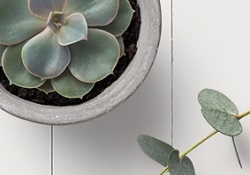By: Urology Care Foundation | Posted on: 24 Apr 2019

You may be struggling with urinary symptoms and think overactive bladder (OAB) is the cause. Or, your health care provider may have already told you that you have OAB. Either option, this site will give you the tools and information to help you understand and better manage your condition.
You may also want to access our OAB Interactive Patient Guide. This web-based tool will take you through the entire journey from understanding OAB to taking control and finding treatment.
What is Overactive Bladder?
If you've ever had that "gotta go" feeling, or the sudden urge to urinate that you cannot control or make you feel that you won't make it to the bathroom in time, you may have overactive bladder. This strong urge is one of the main signs that you may be living with overactive bladder (OAB). This is different from "stress urinary incontinence," or "SUI," when you leak urine while sneezing, laughing or other physical effort. You can learn more about SUI at www.UrologyHealth.org/SUI. Overactive bladder is the name for a group of urinary symptoms. There are three main symptoms:
- A sudden feeling that you have to go to the bathroom, right away (this is the most common symptom of OAB).
- A leak of urine (known as incontinence) with the "gotta go" feeling. Some people may leak just a few drops, while others can have a sudden gush.
- A need to go to urinate often (frequently), day and night.
With OAB, you feel that you need to go to the bathroom - even when your bladder may not be full. This leads to the feeling that you need to empty your bladder, right now. You can't control or ignore this feeling. If you "gotta go" eight or more times each day and night, or fear that urine will leak out before you're ready, you may have OAB. This "gotta go" feeling has many women running for the bathroom multiple times per day. This urge may be accompanied by urine leakage in some cases.
Who Gets OAB?
- Both men and women get OAB. In fact, OAB affects millions of Americans. As many as 30 percent of men and 40 percent of women in the United States live with OAB symptoms.
- Older women who have gone through menopause ("change of life") and men who have had prostate problems are more likely to get OAB.
- Growing older is a factor, but not all people get OAB as they age. It's not a normal part of aging.
- People with diseases that affect the brain or spinal cord (nervous system) such as stroke and multiple sclerosis (MS) are more likely to get OAB.
What Causes OAB?
Overactive bladder typically occurs when nerve signals between your bladder and your brain tell your bladder to empty even when it is not full and the bladder and pelvic floor muscles are not in coordination. OAB can also occur when the muscles in your bladder are too active or contract when they are not meant to, creating that sudden and strong urge to urinate. This is called "urgency."
Common Causes of OAB
There are a number of risk factors or common causes of OAB, including:
- Increasing age
- Back issues/surgery
- Obesity and being overweight
- Neurological conditions that affect the brain and spine including diabetes, multiple sclerosis, Parkinson's disease, stroke, cerebral palsy and spinal cord injury
- Bladder tumors, stones and infections
- Certain medications such as diuretics, sedatives and antidepressants
- Certain foods such as caffeine, alcohol and spicy foods worsen symptoms
OAB does not cause pain. If you feel pain while urinating, you may have an infection. Please talk with your health care provider about pain. Visit our Urologic Conditions webpage to learn more about OAB Treatment Options.
Explore Further
Share Your Story
Have a story to share? The Urology Care Foundation invites you to share your experience with a urologic condition and how it has affected you or your family.
Make a Differnece
Your tax-deductible gift will help support the millions of patients who are faced with urologic disease. Together, we care.



